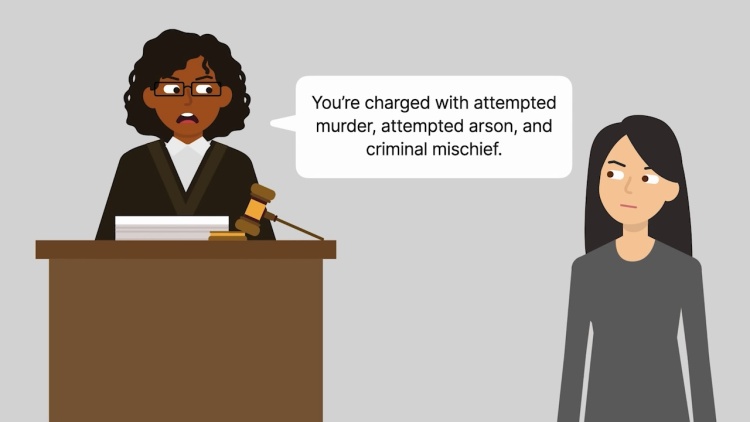In re Dube
New Hampshire Supreme Court
44 A.3d 556 (2012)
- Written by Craig Conway, LLM
Facts
Eric Dube (plaintiff) filed a petition for divorce from his wife, Jeannie Dube (defendant), on the ground of irreconcilable differences. Thereafter, Eric amended his petition to add an alternate fault ground for divorce, claiming that Jeannie had treated him so “seriously” as to “injure health or endanger reason.” Jeannie claimed that Eric was at fault for the breakdown of the marriage, because he had a one-time affair. The evidence produced at a hearing showed that, after learning of Eric’s adultery, Jeannie told Eric by telephone that she was going to kill their son and Eric’s child from a previous marriage, as well as Eric’s parents. Jeannie doused and attempted to ignite their marital home with gasoline. Additionally, Jeannie destroyed a portion of their home and property, and chased Eric’s father with an axe. Jeannie was charged with attempted murder, attempted arson, and criminal mischief. Prior to the final hearing in the divorce matter, Jeannie was convicted for arson and criminal mischief and sentenced to two to four years in prison. Consequently, Eric argued that Jeannie’s criminal conviction constituted a crime punishable with imprisonment for more than one year under the state’s causes for divorce. The trial court granted the divorce decree on the grounds of Jeannie’s criminal conviction and subsequent imprisonment. Jeannie appealed.
Rule of Law
Issue
Holding and Reasoning (Conboy, J.)
What to do next…
Here's why 907,000 law students have relied on our case briefs:
- Written by law professors and practitioners, not other law students. 47,100 briefs, keyed to 996 casebooks. Top-notch customer support.
- The right amount of information, includes the facts, issues, rule of law, holding and reasoning, and any concurrences and dissents.
- Access in your classes, works on your mobile and tablet. Massive library of related video lessons and high quality multiple-choice questions.
- Easy to use, uniform format for every case brief. Written in plain English, not in legalese. Our briefs summarize and simplify; they don’t just repeat the court’s language.





